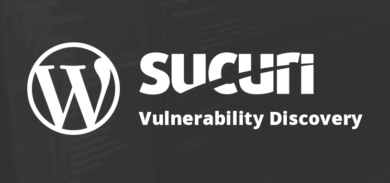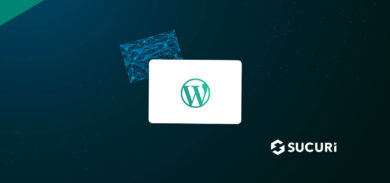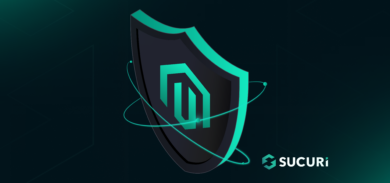The responsibility of ensuring that a website is protected falls on the website owner, but the security expectation may fall on the web service provider too.
As a professional, you are the trusted party and first point of contact.
Much of what your clients learn about web technology and security specifically comes from you. In other words, you have the ability to impact your client’s online security posture.
The security of websites has an enormous effect on what you do as a website service provider, making it impossible to ignore.
You build websites and offer other important services, but we challenge you to start thinking about your client’s website security.
What would you do if there was a compromise?
Implications of a Website Hack for Developers, Web Pros and Agencies
The most tangible impact of having a client’s website hacked is time. The majority of you have already likely experienced a call from a desperate client whose website has been compromised.
It’s a virtual nightmare and detracts from time that could be spent focusing on your projects and initiatives.
A website hack can result in a number of costly problems for your business:
- Reallocation of resources
- Customer support
- Customer frustration
- Loss of business
If you perform a cost-benefit analysis, you’ll probably find that doing what you are good at is much more profitable than trying to deal with a security breach.
No matter how well you developed a quality website, leaving it unprotected can be harmful, inevitably leading to the website owner coming to you first once their website has been compromised.
Since agencies, developers, and web pros are the website owners’ trusted point of contact, clients will come to you when their website is hacked.
Not having a solution can be very frustrating and a disappointing experience, as your clients depend on you as a knowledgeable professional.
Lesson 3 – Impacts of a Website Hack for the Website Owner
As a website service provider, you are in a position to educate your clients on website security risks.
Regardless of the objective of your clients’ businesses, they do have a brand. Whether they realize it or not (regardless of their audience size) trust is an important piece of it.
It can take years to build a brand and minutes to lose it. A hacked website is notorious for destroying trust.
Whether it’s a data breach or a drive-by-download that infects the visitor’s desktop, the result of any nefarious act will almost always lead to the same thing – loss of trust in the brand.
Another vital implication of a website hack is the economic impact. If a website becomes blacklisted by Google or blocked by the host, the audience loses faith in what the website provides.
With no new traffic, there is no growth generated in the purchasing of products or services.
The economic aspect is easily one of the most recognizable impacts to your clients. However, we have to think beyond revenue and consider what the website owner has already spent on building their website and brand.
Expenses are not always monetary.They can be related to emotional distress or the website owner’s time spent rebuilding their brand, their SEO, and their audience.
The Agency Plan from Sucuri
Sucuri’s Agency Plan was crafted specifically towards agencies, developers, and web professionals.
With a starting point of 10 websites, the agency plan is always flexible.
You can adjust to add more sites whenever you need to, and if you stop doing business with clients, you can always remove them from your account.
These versatile website security plans are designed to fit the deployment and sustainment of your customer projects.
The program embraces the needs of a variety of web professionals—from small web pros who manage 10 sites, to larger agencies with hundreds of clients.
Our multi-site solution is tailored to include our most popular features, including monitoring and detection, as well as firewall protection.
Our monitoring and detection platform is a remote and server-side scanning engine.
It acts as a fail-safe to detect any malicious code and monitor things like uptime, DNS changes, and other indicators of compromise in order to give you visibility into what is going on with the website.
Our firewall protection platform blocks attacks and malicious traffic at the edge of our network. This keeps website environments safe from zero-day exploits, DDoS attacks, and hackers.
You’ll also enjoy performance improvements on your client sites. The Sucuri Firewall features a built-in CDN, which decreases page load times by 80% on average.
The Benefits of the Sucuri Agency Plan
Our agency plan ensures you can protect all of your customer projects, preserve your reputation, and stand out from the competition.
When you become a part of the agency program, you’ll be able to manage multiple domains from a single Sucuri account with our intuitive dashboard.
Our tiered-volume discounts make adding more websites easy without breaking the bank.
We offer customized onboarding, education, and a dedicated account specialist to get you up to speed. And our easy set up requires no installation— only web server credentials and a DNS change.
Time is your most precious asset. If you’re tired of managing security issues on your own, save time with web security professionals who dedicate their resources to research and products that protect your clients and their websites.










